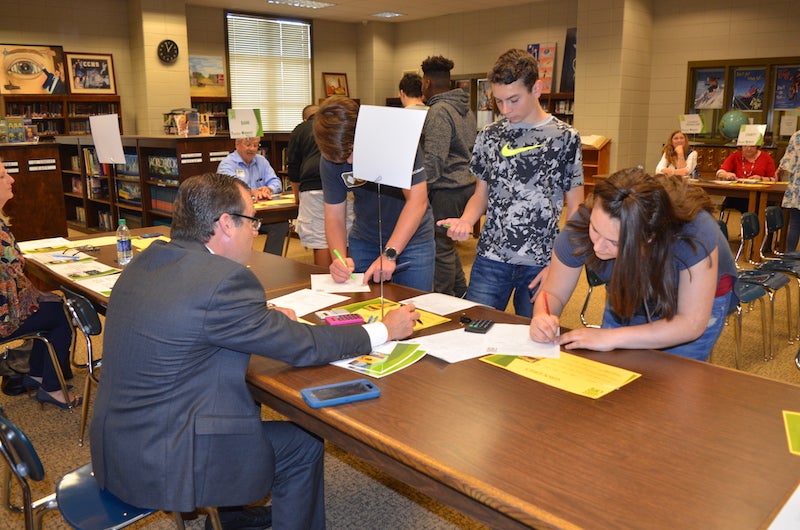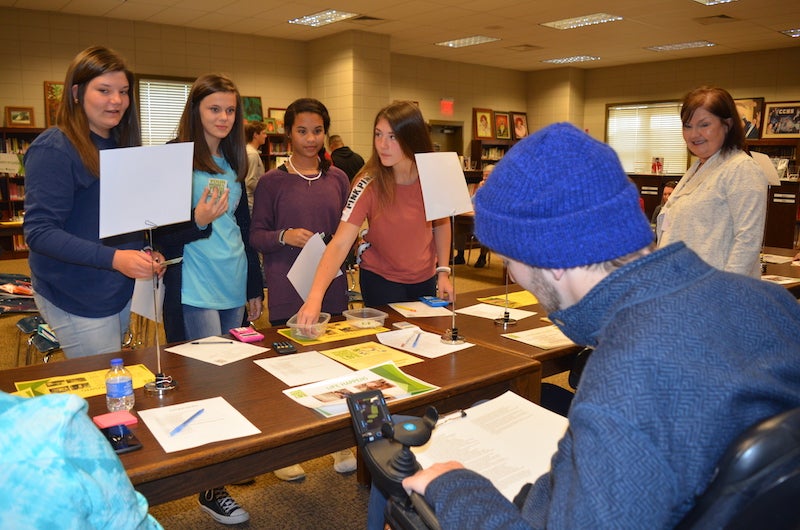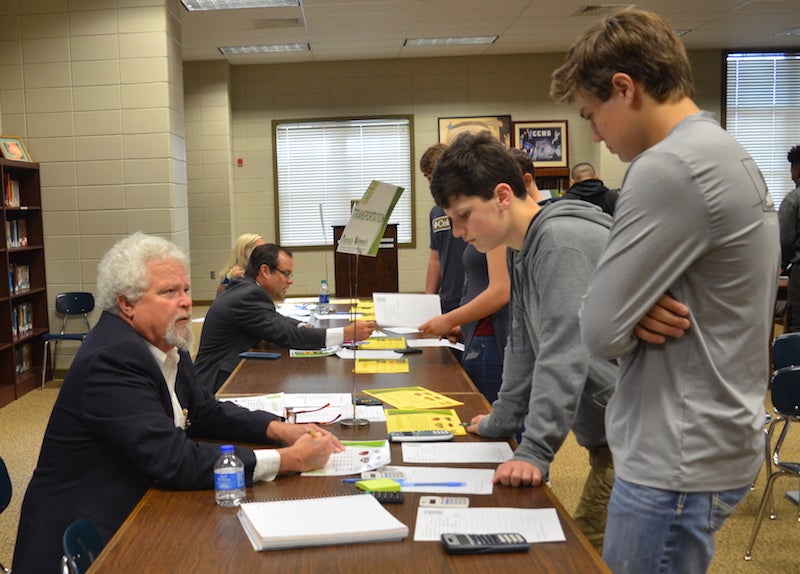CMS students tackle life expenses
Published 2:46 pm Friday, April 5, 2019
By JOYANNA LOVE/ Senior Staff Writer
Rent or mortgage?
This is just one of the many questions eighth-grade students had to wrestle with on April 4 during the “Your Money, Your Life” simulation in teacher Aimee Dobbs’s class time.
Extension employees, Master Gardeners and other community members volunteered as the employees of each of the simulation’s stations.
Students with a career and salary before asking them to visit each station and spend it.
Stations included necessities like transportation, housing and groceries as well as extras like entertainment and luxuries.
Each student also had to pick a card at “Life Happens” which could be anything from a dentist’s bill to a bonus at work.
At the start of the simulation West reviewed what gross (before taxes) and net (after taxes) pay was with the students.
At some stations, such as groceries, what students had to pay was determined by the size of their family. At others, like entertainment, students had to make choices based merely on what they wanted. Many stations were a balance of what the student needed based on the simulation family they had been given and what they wanted.
Students who had children in the scenario were also required to go to childcare.
Gay West of the Chilton County Extension Office said the financial simulation has each student as a 25 year old who has completed any post high school studies and has started their first career job.
Student Garrett Traywick was an orthodontist in the simulation.
“It’s very interesting,” Garrett said. “It helps you kind of plan out what is actually going to happen in life.”
He said he “sort of had an idea” of how much things would cost before the simulation.
For him, the cost of childcare was surprising.
“Now I see how much my parents spend on me, so it makes it more real,” Garrett said.
His favorite station was transportation, where he chose a used pickup truck as his vehicle.
Student Cayden Anderson was a radiologist, who was married with one child, in the simulation.
“I expected it to be easier,” Cayden said.
Cayden said he was surprised at how much groceries for a family of three was.
Transportation was his favorite station, where he chose a used truck.
“It was cheaper, and trucks are very useful,” Cayden said.
He said housing was the hardest.
Cayden chose a three bedroom house, saying that to rent an apartment large enough actually cost more a month.
Student Jackson Tuell, who was an application software developer, said the simulation felt very real.
“The ‘Life Happens’ was my favorite because you don’t know what’s going to happen,” he said.
Student Macie Miles said the simulator was more detailed than she expected.
“I expected to just have a few questions, not the salary and a kid or spouse,” she said.
Macie was assigned web administrator as her career and had one child.
“Kids cost a lot more than I thought,” Macie said.
Her favorite station was Life Happens, even though it was “just fun but also scary you never knew what would happen.”
This was also the favorite station for students Courtney Stringer, who was a health science assistant, and Josh Varden.
The card she picked meant she was scammed out of some money.
“It shows what can and may happen as you go through life,” Courtney said.
She said she felt the simulation “helped me face reality” and be more prepared for the future.
“The most surprising part was me ending up in the ‘negative,’” Courtney said. “I thought I had enough money, but turns out kids can get expensive.”
Student Tahj Pettway, who was a librarian, was also surprised by the cost of childcare.
“My favorite station was the car station,” Tahj said. “During ‘buying’ my car, I realized that some people want you to spend more than you should.”
Student Joshua Simms, who was a truck driver, said he had to “rethink my money plans” during the simulation. Student Austin Evans, who was an industrial engineer, said he also had challenges having enough money.
Volunteer Golda Thomas said she wanted to be a part to help students “learn financial planning and what happens in the future when they get out of school.”
“It’s been wonderful,” Thomas said.
She said many of the students had a concept of just how much they would need for what, while others wound up changing their car or cellphone choice in order to make ends meet.
Thomas covered utilities, cellphones and home entertainment at her station.
Like any good salesman, Thomas was trying to get students to choose the top of the line plans. She said it had been easy to talk some of the students onto a more expensive plan.
“They have an occupation they’re given and then they have their gross and their net pay,” Thomas said. “I think they are finding out really quick that it goes a lot faster than what they thought.”
Volunteer Dr. Benita Cahalane, who is a retired educator and administrator, was at the entertainment and luxury station.
She said the entertainment costs were based on their interests and came at varying prices.
“These kids are really good thinkers though,” Cahalane said. “They are problem solving.”
She said students were weighing entertainment options in light of was it a one-time expense, such as going out to eat, or a monthly expense, like joining a gym.
Cahalane said concerts and Redbox movies were popular choices.
“This is the fun stuff, and they look down at their budget and realize there isn’t any money for fun stuff,” Cahalane said.
A volunteer representing charities walked around the room and asked students for donations as they were waiting at other stations.









